AFP
The "moderate" Syrian rebels Washington is set to throw its weight behind are a ragtag collection of outgunned factions weakened by a war on several fronts -- against the regime and jihadists.
- Who are the rebels?
While the United States has not specified the groups it aims to support, those usually classed as "moderates" in Syria's three-year war are loosely branded as Free Syrian Army (FSA) fighters.
These were the first rebels to take up arms against President Bashar Assad's regime, before also turning their sights on the Islamic State group (IS) in January.
One of the main groups likely to receive U.S. aid is the Syrian Revolutionaries Front, a large coalition formed late last year with a secular stance.
It was set up after the establishment of the Islamic Front, Syria's largest rebel alliance bringing together various strains of Islamists.
Other formations have also received U.S. assistance in the past, such as the Hazem movement, which has some 15,000 fighters.
In addition, the FSA's massively weakened Supreme Military Council (SMC) headed by General Abdul Ilah al-Bashir acts as the armed wing of the main opposition National Coalition, but it has practically no influence on the ground.
U.S. Secretary of State John Kerry said this week it was hard to give precise figures of the ranks of the moderate opposition, but stressed they were a "legitimate force", and described them as the "principal bulwark" against the jihadists in Syria.
Most of the moderate rebel groups are based in northern Syria, chiefly in Aleppo and Idlib province, though Hama province in central Syria and Daraa in the south are also home to such groups.
Who are the moderates?
According to Ibrahim al-Idelbi, an activist in northern Syria: "None of these groups has any intention to create an Islamic emirate or state. They want a civil state, without a religious ideology. Their stated goals are to bring down the regime and to end the oppression of civilians."
But experts say that, in the context of Syria's war, it is difficult to pinpoint who the moderates are.
"I guess it all depends on how you define 'moderate'," says Aron Lund, editor of Syria in Crisis, a website run by the Carnegie Endowment for International Peace.
"Is it about their ideology, or about not committing human rights abuses, or simply about who is willing to work on instructions from abroad?" he asks.
The lines are most blurred in areas where rebels have forged local alliances with the Al-Nusra Front -- Syria's Al-Qaida branch, branded by Washington as a "terrorist" group.
"In some areas like the (besieged) Eastern Ghouta area (east of Damascus), or Homs previously, it is practically impossible to get military aid in. So all the fighters have to work together whether they like it or not," Idelbi says.
"In a state of war, you have to make alliances with your enemy's enemy."
- How strong are they?
Even though they have received some US military aid, as well as a steady flow of funds and arms from Gulf nations and rich Syrian businessmen, the moderates are much worse equipped than the IS jihadists and Al-Nusra Front.
They have also been exhausted by three years of war against the regime, which since 2012 has carried out daily air strikes against rebel-held areas.
Moderates are frequently accused of poor organisation, corruption and a lack of strategy.
Where will they be trained?
In the past, thousands of fighters have been trained by the United States in Jordan.
U.S. President Barack Obama announced this week that Saudi Arabia has accepted to host the next round of drills.
- Will they be able to fight IS?
SMC chief Bashir has pledged to fight the Islamic State group until its "complete and utter defeat".
The rebels have frequently called for special weapons support such as anti-aircraft and anti-tank missiles, though most of the arms they have received have been light arms.
They say training is not enough to help them fight both the IS group and the regime.
"It is impossible to destroy the IS without U.S. air strikes to accompany the rebels' advance," says Louay Moqdad, a former rebel spokesman.
Experts have meanwhile warned that the absence of a clear U.S. strategy may eventually play into the hands of the regime or IS jihadists, leading Syria even further into the abyss of war.
Latest News
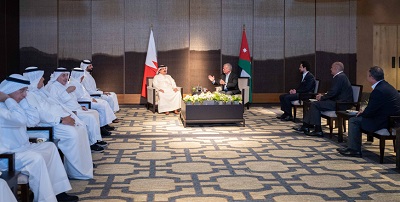 King, Bahrain monarch stress need to maintain Arab coordination
King, Bahrain monarch stress need to maintain Arab coordination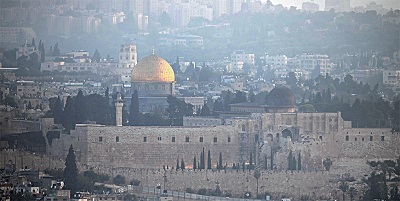 Security Council to vote Thursday on Palestinian state UN membership
Security Council to vote Thursday on Palestinian state UN membership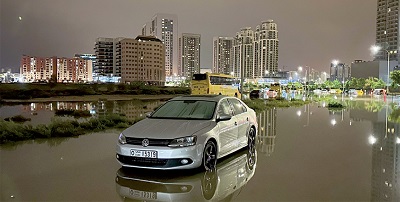 Dubai reels from floods chaos after record rains
Dubai reels from floods chaos after record rains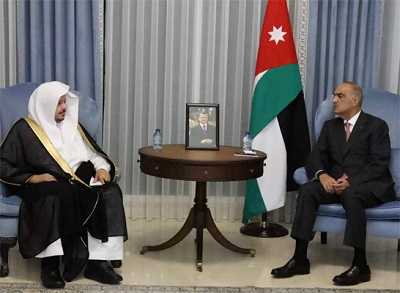 Khasawneh, Saudi Shura Council speaker discuss bilateral ties, regional developments
Khasawneh, Saudi Shura Council speaker discuss bilateral ties, regional developments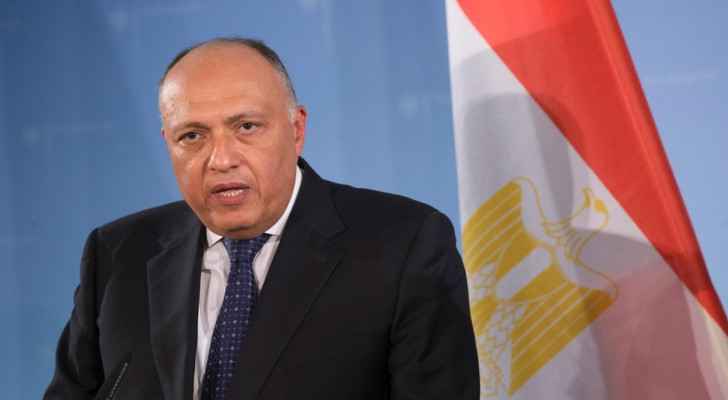 Egyptian Foreign Minister condemns potential Palestinian displacement as 'war crime'
Egyptian Foreign Minister condemns potential Palestinian displacement as 'war crime'
Most Read Articles
- Senate president, British ambassador discuss strategic partnership, regional stability
- Jordan urges UN to recognise Palestine as state
- JAF carries out seven more airdrops of aid into Gaza
- Temperatures to near 40 degree mark next week in Jordan
- Safadi, Iranian counterpart discuss war on Gaza, regional escalation
- UN chief warns Mideast on brink of ‘full-scale regional conflict’
- US vetoes Security Council resolution on full Palestinian UN membership
- Biden urges Congress to pass 'pivotal' Ukraine, Israel war aid
- Google fires 28 employees for protesting $1.2 billion cloud deal with “Israeli” army
- Israeli Occupation strike inside Iran responds to Tehran's provocation, reports say